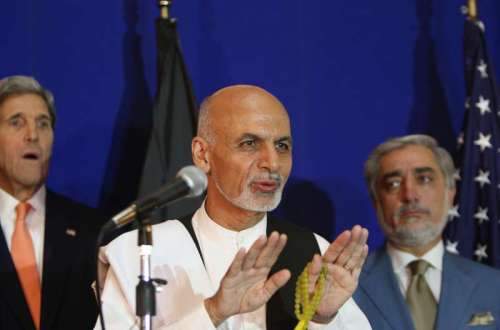 Afghanistan’s new president Ashraf Ghani and Chief Executive Abdullah Abdullah should focus efforts on tackling the country’s persistent human rights problems, Human Rights Watch said Friday.
Afghanistan’s new president Ashraf Ghani and Chief Executive Abdullah Abdullah should focus efforts on tackling the country’s persistent human rights problems, Human Rights Watch said Friday.
In a letter to the new unity government, the US-based group made specific recommendations to strengthen accountability for security forces, advance women’s rights, protect the media, revitalize the Afghanistan Independent Human Rights Commission, and address the need for transitional justice.
“The new Afghan administration should make rights reforms a priority and expand on gains made in the past 13 years,” said Phelim Kine, deputy Asia director at Human Rights Watch.
“The new president and chief executive need to send a loud signal that their unity government will protect the rights of all Afghans, particularly rights for women and girls, which remain under threat.”
Afghanistan’s new unity government comes into power at a precarious time, Human Rights Watch said.
Members of the state security forces remain unaccountable for their role in serious human rights abuses.
A 2013 government investigation into allegations of ill-treatment and torture has not resulted in a single prosecution of a member of the security forces, the group said.
The new leaders should speak out against human rights violations by the security forces and ensure that those implicated in serious abuses, regardless of rank, were investigated and appropriately disciplined or prosecuted.
A dangerous rollback on women’s rights puts at risk significant gains made over the past 13 years to expand rights protections for women, Human Rights Watch said.
Afghanistan’s media have been one of the successes of the post-2001 period, but many journalists have expressed concern that threats from both insurgents and powerful political actors are increasing.
The new leaders should ensure that all attacks on journalists were promptly and thoroughly investigated, and those responsible brought to justice, Human Rights Watch said.
While the Afghanistan Independent Human Rights Commission has played a vital role in advocating human rights for more than a decade, weak appointments have blunted its effectiveness, the group said.